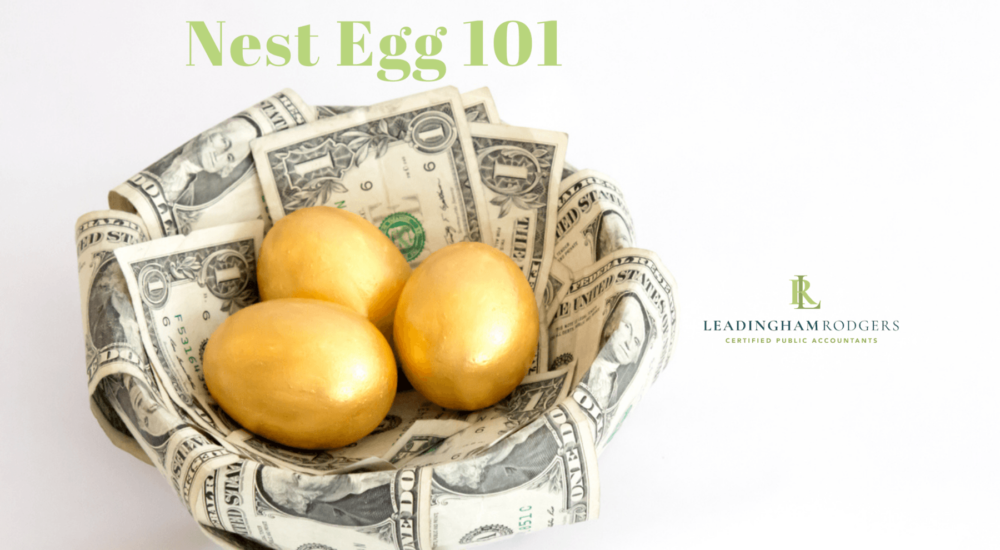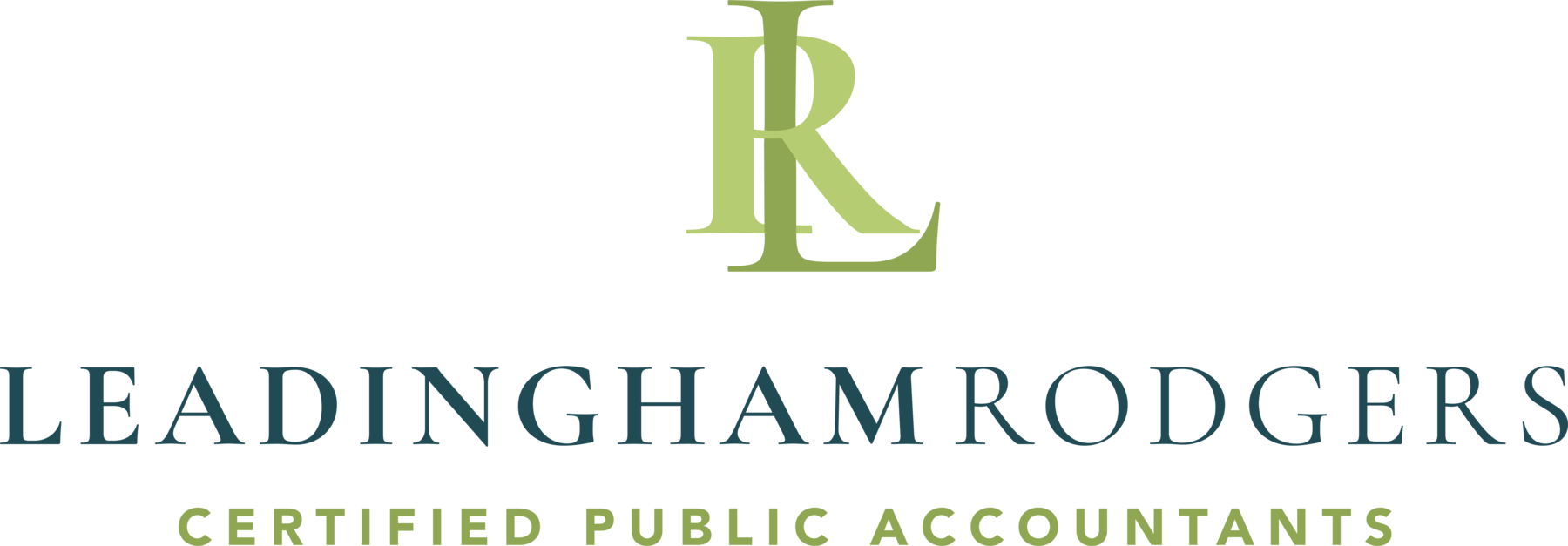As a business owner, your job is to manage the big picture, making sure that…

Nest Egg 101 – An Introduction to Retirement Planning
Coming to us all the way from the 14th century, the term “Nest Egg” was originally coined to describe a real or fake egg placed by a farmer in a hen’s nest. At the time, it was thought that the presence of one egg would encourage the laying of more.
Seven-hundred years later, now a financial term known to all who dream of someday retiring, “Nest Egg” retains the same optimism and foresight of its original meaning: put some money aside and plan for duplication. In this case, we’re setting money aside consistently as we carry on with our careers.
Calculating an appropriate sum for your nest egg can be daunting. So much depends on an accurate figure. How much and how often should you save, and how do you invest to reach your goal?
Leadingham Rodgers Certified Public Accountants have helped countless individuals and business owners polish, place, and take pride in their nest eggs. So much of the guesswork can be put to bed by the guidance of a dedicated CPA.
Nest Egg Basics
When saving for retirement, one principle rings out loud and clear: more is better. Some financial prognosticators recommend investing as much as 15% of your gross annual income toward your retirement.
For some of us, however, 15% may seem a little steep. Assuming you’ve already squirreled some money away for an emergency fund, you’ll want to take a closer look at your budget to see how much you can spare for retirement each month.
The Nest Itself
Ideally, you’ll already have a 401(k),Roth 401(k), or 403(b) set up through your employer, and an IRA or Roth IRA with an independent institution. If you don’t already contribute to these tax-advantaged retirement funds, you may need to do a little research or consult a qualified CPA/financial planner to determine the best option for you.
For those of us fortunate enough to enjoy contribution matching to a 401(k) through our employer, the strategy is simple. You’ll want to contribute as much as you can spare to make the most of matching contributions, effectively doubling your investment. Though you’ll be allocating more of your paycheck for the long run, think of it as free money, as your employer is adding a dollar for every dollar you invest.
Beyond what your employer matches, the remainder of your monthly contribution can be placed into an IRA or Roth IRA for investment. Your IRA comes with annual contribution limitations resulting from their enormous tax advantages. Working with a CPA can help you maximize these advantages through contributions.
Laying More Eggs
Now that you’ve calculated what kind of egg to place in which kinds of nests, you’ll want to start thinking about an investment strategy.
While nest egg investment strategies can be many things, the one thing they shouldn’t be is unnecessarily risky. At the same time, you don’t want to be unnecessarily risk-averse either. Your nest egg is your future, and the goal is long-term development rather than short-term gain. You want to allow the power of compound interest to do its work uninhibited.
A diverse portfolio in low-risk, blue chip stocks is a good place to start. Better yet, you may want to consider mutual funds and ETFs that track large indices, such as the S&P 500 or Russell 2000. Investing in equities helps our nest egg grow faster than inflation, ensuring that we’re not outpaced by the economy on our way to setting up our retirement.
Ask the Farmer
The fact is, many of us don’t have time to deploy even the soundest investing decisions. Ultimately, the best strategy for constructing a sound, time-tested nest egg is to consult the experts. Leadingham Rodgers CPAs know how to make your financial dreams come true.
They can help you with the size, placement, and promise of your nest egg–both now and for the next 40 years.
Consult the experts before calculating your ideal nest egg!
When it comes to your financial future and the dreams you have for retirement, why take a chance on internet expertise or small-town financial planners when the best advice available is only a phone call away? Your future is too important to leave to chance. Get a first, second, or third opinion on your nest egg by calling (334) 270-3366 today!



